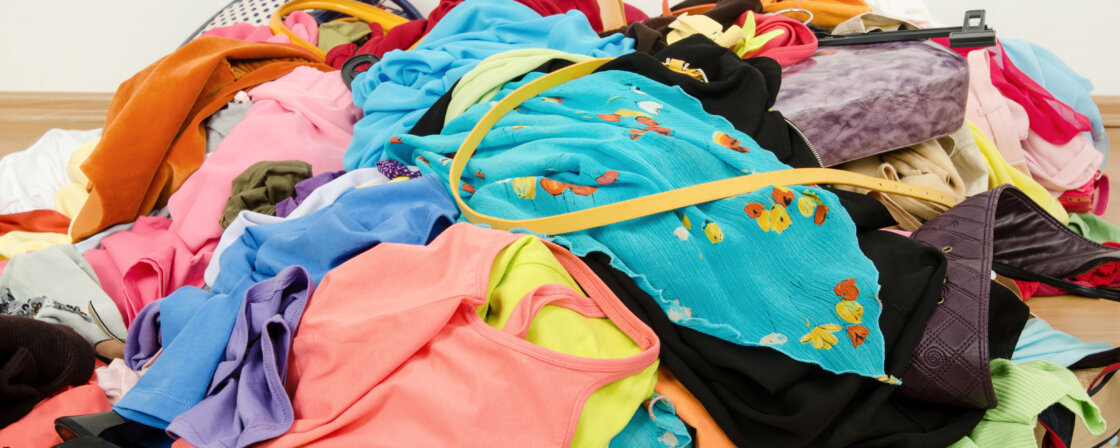More and more people are going online instead of going to regular shops to make purchases. And more and more people here are choosing cheap Chinese e-shops with a wide range of offerings. But online safety is a concern for these shops. The goods look very good at first glance, but nothing is as it may seem at first glance. Exploitation, pollution, dangerous materials and illegal practices are behind the low prices.
The liquidation of small businesses
Extremely low prices, a wide range of products and extensive marketing mean that local entrepreneurs cannot compete with similar Chinese e-shops. In addition, the fact that these sellers make no secret of dumping prices, stealing designs and failing to comply with local rules contributes to this.
You don’t have to be concerned about the fate of small businesses, but you should be aware that if something is this cheap, you should pay attention. This low price has to come from somewhere, and in the case of Chinese e-shops, it is often due to exploitation of workers, pollution and unethical business practices.
Poor working conditions
Some Chinese e-shops violate Chinese labour laws. In some cases, factories operate underground in ordinary residential buildings where safety protocols are not followed – there is no ventilation and workers are exposed to fire hazards with no escape routes.
Employees also often work underground without a contract, 75 hours a week, commonly 17 hours at a stretch, and do not receive even minimum wage for their work. Yet Chinese law sets maximum working hours at eight hours a day and 40 hours a week. It is also common practice to dock wages for production errors.
Pollution of nature
Another pressing issue is the ecological impact that Chinese e-commerce has on the environment. Many of these shops offer what is known as ultra fast fashion, i.e. a fast-fashion offer. However, this means that the clothes are made as quickly and with the cheapest materials as possible. These are virtually disposable garments, and landfills fill up very quickly with low-quality clothing.
There are huge CO2 emissions associated with the production of the clothes themselves, and water pollution caused by the use of toxic substances in the dyeing of textiles is also a major problem. The huge number of parcels being sent around the world further contributes to the overall pollution. Often, these shops hide behind so-called greenwashing.
Greenwashing is a marketing practice in which a company presents its products as greener and more sustainable than they actually are. The aim is to improve the company’s image in the eyes of consumers and to gain a competitive advantage by appearing to focus on environmental protection.
As it relates directly to you
You may not be personally affected by the working conditions of your employees or the environmental consequences, but what can cause you problems is the lack of consumer protection, misuse of data and poor quality and toxic products.
Are you solving a similar problem?
Do you need help?
Are you facing a legal problem that is beyond your capabilities and does not fall under any of our legal services? We will assess your case and draft a proposal for legal services to resolve it within 24 hours. If you then decide to entrust its solution in our hands, you have the drafting of the proposal free of charge.
I want to help
- When you order, you know what you will get and how much it will cost.
- We handle everything online or in person at one of our 6 offices.
- We handle 8 out of 10 requests within 2 working days.
- We have specialists for every field of law.
Data abuse
Data abuse is suspectedat some Chinese e-shops and warned against by energy security experts around the world. For example, the apps of some of them require access to a microphone, fingerprints, IP address or GPS location, which is really excessive for a shopping app.
Tip for article
Tip: You can encounter data abuse and theft on the internet in many ways. That’s why it’s important to be aware of how different scams work. One of them is Pig butchering, which we have covered in our article.
Toxic materials
Goods sold within the European Union must meet strict conditions to ensure their safety and harmlessness. The standards for products intended for children are particularly strict, and are governed in particular by the Toy Safety Directive. For these products, a certain content of harmful substances is prohibited and mechanical resistance is required. Toys must also bear clearly visible and comprehensible warnings and information on use and possible risks.
However, some toys from Chinese e-shops carry a risk of suffocation, cutting or strangulation. Their chemical composition often does not meet EU standards either. Some toys have been measured to contain boron at 11 times the permitted limit.
However, it is not only children who are at risk, but also adults, because of the toxic materials used in the production of cosmetics and clothing. High levels of lead, phthalates and PFAS are no exception. Lead is a heavy metal that can be very dangerous to human health. In adults, exposure can cause reproductive problems, nervous system and kidney damage. In children, long-term exposure can lead to lower IQ, behavioural problems and slower physical growth.
Misleading advertising and missing information
Some Chinese e-shops fall far short in providing all the necessary product information. For example, you will often not find essential information about the ingredients of products on their websites. In addition, you may also encounter misleading advertisements. The goods in the pictures often do not correspond to the goods you receive, and the whole system tends to be non-transparent in many respects.
It is also not uncommon for customers to be manipulated by a limited time or quantity offer, which is not actually limited. The system of discounts, which disguises the original prices, is also unclear.
Quality x quantity
The last reason to reconsider buying from Chinese e-shops is the questionable quality of the products on offer. Tomas Bata said “I am not so rich that I buy cheap things” and this statement can be perfectly applied to some Chinese e-shops. The goods you get here are very cheap, but the price matches the quality. The garments haven’t seen cotton from a train and so you usually get polyester cozies that are ripe for the bin after a few washes. In addition, the fabric is usually extremely thin and sheer and the stitching is of poor quality.
However, in conclusion, and not just to criticise, it should be said that the goods of many Czech sellers also come from poor conditions and the quality lags considerably. On the other hand, it should be remembered that extremely cheap Chinese e-shops represent a kind of next stage of consumerism and the question is how far this trend will continue. Therefore, before buying any item, we should perhaps all think about where it comes from, what it stands for, and whether we really need it.




